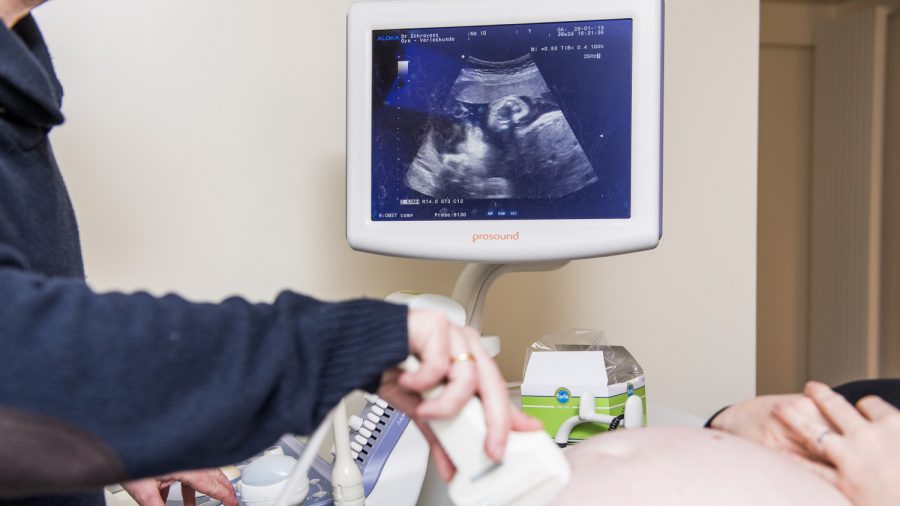A bill that bans “human dismemberment abortion” except for in medical emergencies was signed into law by North Dakota Gov. Doug Burgum, but lawmakers stipulated that it will only be effective with a federal court action or a ruling by the U.S. Supreme Court.
A description of the procedure known as dilation and evacuation is featured in the bill (pdf).
“For purposes of this section, ‘human dismemberment abortion’ means intentionally dismembering a living unborn child and extracting the unborn child one piece at a time from a uterus, with the purpose of causing the death of an unborn child, through use of clamps, grasping forceps, tongs, scissors, or similar instruments that, through the convergence of two rigid levers, slice, crush, or grasp the head, arm, leg, spinal cord, internal organ, or other portion of the unborn child’s body to cut or rip it off, regardless if the fetal body parts are removed by the same instrument, suction, or other means,” it stated.
The bill would make it a crime for a doctor to perform the dismemberment, opening them up to a sentence of up to five years in prison and a $10,000 fine.
Governor Doug Burgum signed a bill yesterday protecting North Dakota children from dismemberment abortions, a barbaric and dangerous procedure typically used in the second trimester to kill nearly fully-formed, living unborn babies.https://t.co/k6E7d5kc3x pic.twitter.com/teqMrw2ybz
— Liberty Counsel (@libertycounsel) April 11, 2019
According to the pro-abortion Guttmacher Institute, dilation and evacuation is the most common abortion method used in the second trimester.
“Dilation and evacuation is a surgical abortion procedure that takes place after the first trimester of pregnancy. Similar to a first-trimester surgical procedure, the patient’s cervix is dilated and suction is used to remove the fetus,” the group stated on its website.
“Depending on a variety of factors (including gestational age, the extent of dilation, and providers’ training and preference), the provider might also use surgical instruments as a primary or secondary part of the procedure.”
According to the North Dakota Department of Health, the method hasn’t been used in the state since 2015, reported the Bismarck Tribune.

The bill was passed by the state Senate in late March, with Republican Sen. Janne Myrdal saying the graphic language in the bill was a “historical necessity.”
“Through history, sometimes mankind and humanity, we need to see the gruesomeness of something before we stop and go, ‘Whoa, that should not occur,'” she said, reported the Tribune.
Laws banning the procedure are on the books in Mississippi and West Virginia. Similar laws are on hold because of legal challenges in Alabama, Arkansas, Kansas, Kentucky, Louisiana, Ohio, Oklahoma, and Texas, according to The Associated Press.
The 8th U.S. Circuit Court of Appeals is weighing a decision in the Arkansas case after hearing oral arguments about a judge’s decision to block the law there.

Alabama asked the Supreme Court to review its ban late last year after a lower court found that the law “constitutes an undue burden on abortion access and is unconstitutional.”
The bill signing came as Georgia Gov. Brian Kemp said he would sign a bill soon that would ban abortions at about six weeks, once a heartbeat is detected in an unborn baby.
And lawmakers in Ohio passed a heartbeat bill for the second time in two years, pushing it to new Gov. Mike DeWine after former Gov. John Kasich vetoed the first one before leaving office.


